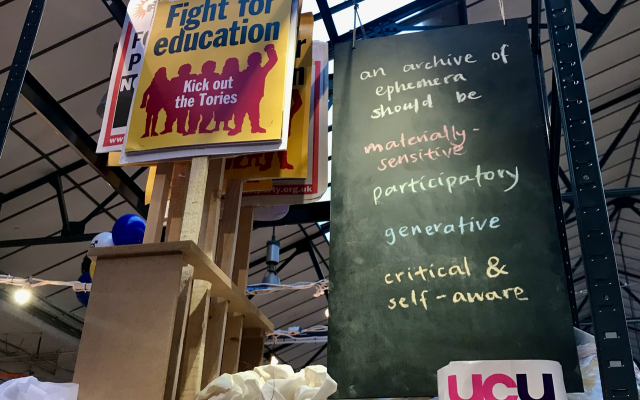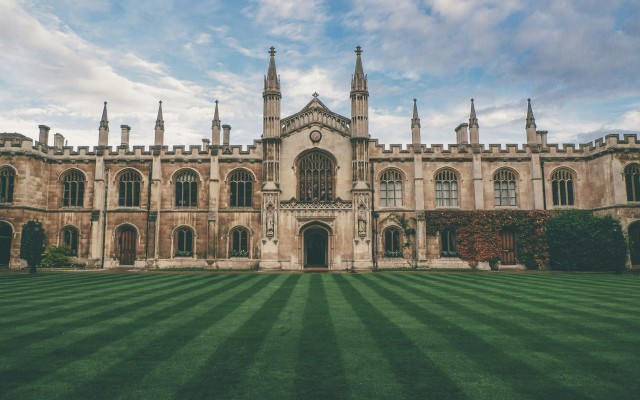
Warsaw in Our Age of War
Published on: October 2nd, 2024
Read time: 7 mins
We are heading to Warsaw next week for our third ISRF annual conference, called “Migration and Democracy in a Time of Climate Crisis.” As the name suggests, it will focus on three core issues – Migration, Democracy and the Climate Crisis.
So how are those issues doing in 2024?
The migration picture is bleak. The UN Refugee Agency reports that over 117 million people were forcibly displaced worldwide at the end of 2023. The reasons vary, but the waves correlate strongly with violence and war.
Of the 43.4 million with refugee status, about 159,000 have been resettled – that’s just one-third of one percent. “Compared to a decade ago, the total number of refugees globally has more than tripled.”
In addition, most costs are borne by non-rich countries. 75 percent of refugees are hosted by low- and middle-income countries; another 21 percent by the “Least Developed Countries”, which have 1.4 percent of global product while hosting over a fifth of refugees.
In response, the global North has focused neither on fair cost sharing nor on expanding resettlement in rich countries nor on treating root causes. Instead, countries in Europe and North America have focused on fortifying borders and reducing movement to their regions from the global South.
The discourse on migration is its own kind of problem. The global North’s politicians and civil societies have made migrants seem like a terrible burden even as they shield themselves from nearly all of them. Routine condemnations of immigrants blot out their motives and lives, and make democratic solutions seem weak and wrong.
And yet, in keeping with the ISRF’s general interest in both diagnosis and cure, a number of our Warsaw sessions will offer alternatives to Fortress Europe and Razor-wire America.
One highlight will be a screening of the 2023 film Green Border, to be followed by a discussion with its remarkable director, Agnieszka Holland. Holland is well-known for films like Europa Europa, Spoor, and Mr. Jones, and has also had a side career directing episodes of U.S. TV shows like The Wire, The Killing, and Treme.
Green Border considers the lives of migrants caught literally between the wire along the Poland-Belarus border in 2021, having been brought to Belarus under false pretences. The film depicts diverse responses from Poles — including setting up a kind of underground railroad – as they wrestle openly with their own reactions. The film and our delegates’ papers suggest paths out of the current angry deadlock about global migration.
Democracy is also in peril as anger becomes the most visible political emotion in the global North. This is especially true as it deals with global issues it had a strong hand in making. Anger has always been a targeted political weapon, and has always been used to suppress political complexity. A key complexity is the working of democracy itself.
Democracy requires a lot of basic knowledge. It demands an interest in unfamiliar others. It demands a capacity for deliberating ambiguities, avoiding the short cuts of repudiation and force.
In the 21st century, we’ve been taking the shortcuts. One organisation that tracks trends worldwide, the V-Dem Institute, reports that the share of the world’s population living in autocracies has, over just 20 years, risen from 50% to 71%. Democratisation has overall gone into reverse.

Source: Marina Nord, et al., Democracy Report 2024: Democracy Winning and Losing at the Ballot. University of Gothenburg: V-Dem Institute. March 2024, p 7.
Poland today is an exception to this trend towards autocracy. One of our Warsaw sessions convenes local experts to discuss prospects for Polish democracy and implications for other places.
Climate change is the greatest threat to our planet. This was to be the decade when the world got serious about reversing it – but the crisis grows.
The 2000s were also supposed to have brought hope. 1992 saw the UN’s Earth Summit in Rio de Janeiro create the United Nations Framework Convention on Climate Change (UNFCCC), which launched collective action on a global scale. But the 2000s ended up being dominated by a decade of US war in the Middle East, deregulation with asset price bubbles, and the global financial crisis.
The 2010s were also meant to have brought solutions. But they became the decade of austerity, a fracked oil boom in the U.S. and Donald Trump, leading to the global Covid crisis and yet more policy diversion.
So what now? Two years ago, India’s Prime Minister Narendra Modi tried to give it a steer. “I know that today’s era is not an era of war, and I have spoken to you on the phone about this,” Modi told Russian president Vladimir Putin.
Putin agreed. He replied, “I know about your concerns. We want all of this to end as soon as possible.”

Putin was right about that—even as he refuses to end the war he started. We do want all of this to end. The forced displacement of people. The autocratisation of societies. The accelerating climate chaos. The new age of war.
But how? Our several dozen delegates will have plenty to say about this in Warsaw. I’ll mention one of my general solutions: state rules for the private sector driven by popular movements.
I have long admired this method. Smog was a central fixture of growing up in Los Angeles. In my high school classrooms in the 1970s, I would watch the Hollywood Hills disappear into sunny brown murk every day after lunch. My grandfather kept an oxygen tank in his bedroom for the many days when the smog was especially bad.
Corporate refusal of cost-sharing was and is a powerful thing, and yet under public pressure, Ronald Reagan, as governor of the state, signed legislation in 1967 to create the California Air Resources Board (ARB). Its combination of extensive research and regulatory authority helped force lead out of fuel, lowered pollution caps for cars in the state, and influenced pollution policy across the country.
If you need to put gas in your tank in California, the first think you notice is how heavy the nozzle is. The nozzle has rubber sleeve that form a seal with the cap. And as a result, while you’re refuelling, you don’t breathe raw fossil fuel fumes and they also don’t become greenhouse gases in the air.
Have you ever seen one of these sealed nozzles? For decades I never found one outside of California – although I did find Reddit threads with titles like, “Just moved from Texas, I don’t know how to pump gas with the weird California nozzle.”
The only reason the weird nozzles existed in California is that the ARB forced every service station in the state to install them. Federal regulations later spread them to some other states.
There was throughout this period a predictable lack of fuel station owners who installed sealed nozzles of their own free will to help the planet.
The lesson is that blanket regulation works, based on involuntary targets and uniform standards, set by an administrative state that has a majority of the public behind it.
War as we know brings death and destruction. It also worsens the climate crisis and forced displacement. It effectively suspends democracy. It convinces many that democrats are too weak to defend them, that war will bring them safety. War derails non-military collective action. War lowers standards. War makes discussion of vapour-reducing fuel-nozzles seem like a joke.
This age of war must stop before it settles in. How will be another of our Warsaw topics. I’m looking forward to hearing from many of you there.
Recent Director's Notes
Feature image from Wikimedia.
Bulletin posts represent the views of the author(s) and not those of the ISRF.
Unless stated otherwise, all posts are licensed under a Creative Commons Attribution-NoDerivatives 4.0 International License.


